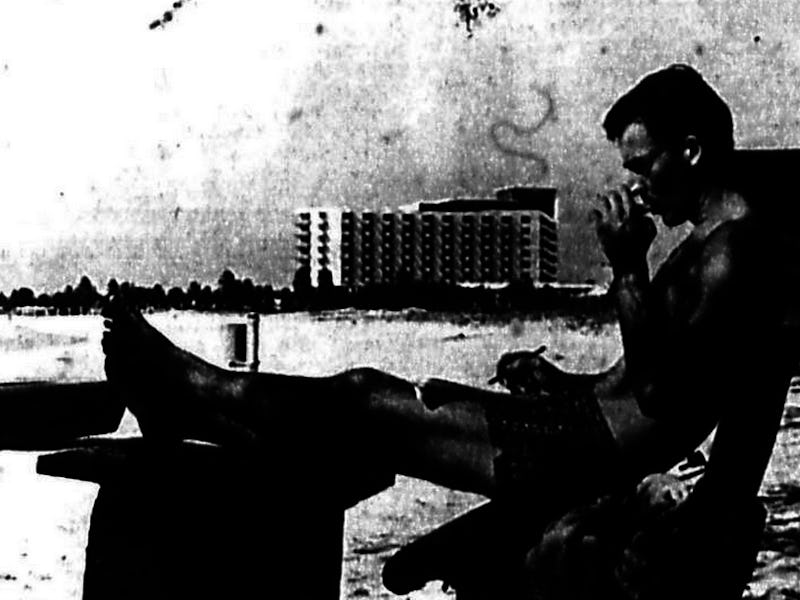What Hunter S. Thompson's Lost Stories Teach Us About Hunter S. Thompson
The internet has coughed up a gonzo fur ball and it's a fascinating mess.

In 1962, Hunter S. Thompson was connected to New York and the publishing industry by the longest and most delicate of threads. The future gonzo maestro had an agreement with the editors of the National Observer, a new, weekly Dow Jones Company paper aimed at weekend readers, to submit dispatches during an extended jaunt through the Caribbean and South America. Though some of HST’s Observer stories were later anthologized (dude had an Updike-esque tendency to publish his every thought) in The Great Shark Hunt, many disappeared. Now, the disappeared have reappeared on the Internet (courtesy of Archive.org), because that’s what happens.
The stories, travelogues infused with the political anxieties of the Cold War era, run between 800 and 1500 words and paint a picture of a writer with an emerging personal style and an absolutely terrible editor. In a sense, HST was learning to do everything wrong extremely well, perfecting personal style that would allow him to publish a quivering glut of quasi-fictional, self-obsessed, keenly-observed articles in Rolling Stone, Esquire, and Playboy.
He was an Internet writer before the blogosphere clamped down on self-aggrandizement — to whatever degree that has happened.
Here’s how HST kicks off a piece about Bolivia: “If Bolivia were half as bad as it looks on paper, the government would send a crew to all this country’s points of entry to post signs saying, ‘Abandon all hope, ye who enter here.’”
That’s what we in the industry call terrible writing. Not only is the lede devoid of the sort of description that makes actually going places worthwhile for a writer, the internal logic doesn’t track. Why would the government put up signs to keep people out if they needed money? Why would they use an English translation of a quote from the “Inferno.” A good editor — hell, a half-conscious editor — would have deleted the paragraph. The same hypothetically competent individual would also have probably looked into the “Doctor Brainwash,” the local lunatic “well known at the American and British embassies” described to HST by a nameless American. The good “Doctor,” as it turns out, believes that the U.S. government owes him $250,000,000 for communicating telepathically with Kruschev and keeping the Cold War cold.
When details like that sound too good to be true, it’s normally because they are. The good doctor in this case, also sounds super familiar.
HST is also very fond of attributing sentiments to great swathes of people, a hallmark of his later political coverage. He characterizes entire peoples with a few words and just moves on. He also establishes fact via the tautological method of just asserting that ideas are facts: “The government’s inability to get anything done” is treated as a readily granted premise in an article on Brazilian elections, one of only a few pieces to not include any passages in the first person.
Perhaps the best HST-ism, is the inclusion of a photo of himself on the beach in Aruba in a travel article about that island nation. The captions labels the man in the picture as a tourist — and it’s not unlikely HST’s editor believed that to be true. Modern readers might recognize it as the cover art for The Rum Diary. HST wasn’t afraid to put himself out there.
On some level, HST seems to have actually benefited from lazy editing. His pieces all seem legally actionable, irresponsible, full to brimming with half truths, and extraordinarily cohesive. The strength of the voice outweighs the power of the sentiment to such a degree that his editor probably just shrugged and wandered off to catch the 5:15 to Mamaroneck. That’s pretty much how the rest of HST’s career went and though that never worked out terribly well for his subjects, it was a boon to readers, creating a space for prose stylists and wild voices in the feature wells of prominent magazines. Perhaps the dude became a trailblazer merely because no one ever pointed him toward the actual path.
Either way, HST would have been an amazing blogger - for the two to three months before someone caught him making stuff up.